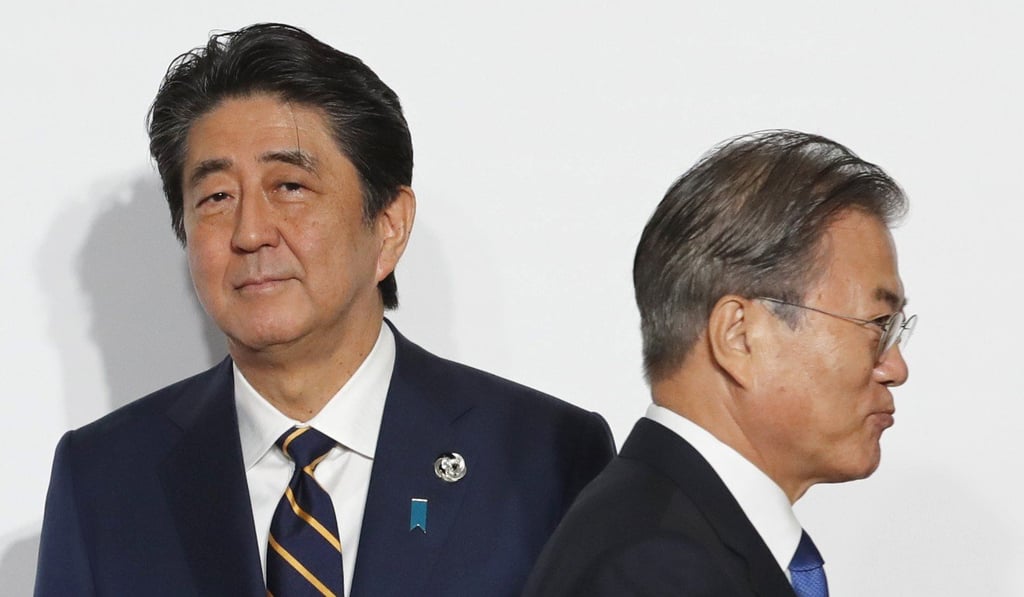Japan and South Korea trade accusations ahead of WTO meeting
- Officials from two countries discussing Tokyo’s export restrictions on chemical ingredients at World Trade Organisation in Geneva
- Seoul claims Japan – not South Korea – has breached international sanctions on the North, while Tokyo says its ‘trust’ in Seoul has been damaged

Japan and South Korea have traded accusations ahead of a World Trade Organisation meeting, with Seoul claiming it was Tokyo that had breached international sanctions on North Korea, not Seoul.
Top trade officials from the two countries are discussing Japan’s export controls on South Korea at the WTO in Geneva on Tuesday, after Seoul earlier this month raised the issue with the trade body, calling them an “unfair practice”.
Japan imposed export restrictions on three chemical ingredients earlier this month: fluorinated polyamides, used in smartphones; photoresists, used in semiconductors; and hydrogen fluoride, used in semiconductors. It claimed that its “trust” in South Korea had been damaged.
South Korean firms are heavily reliant on Japan for all three compounds – in May, the country sourced 94 per cent of fluorinated polyamides and 92 per cent of photoresists from the country, according to the Korea International Trade Association.
The seeds of the trade row lie in a dispute between Seoul and Tokyo over the legacy of Japan’s colonial rule over the Korean peninsula prior to the end of World War II. Tokyo, which believes it settled all necessary compensation under a treaty signed in 1965, has been angered by a South Korean court’s recent order that Japanese firms must compensate wartime victims of forced labour, while Seoul believes that a victim’s individual right to file a claim has not expired.
